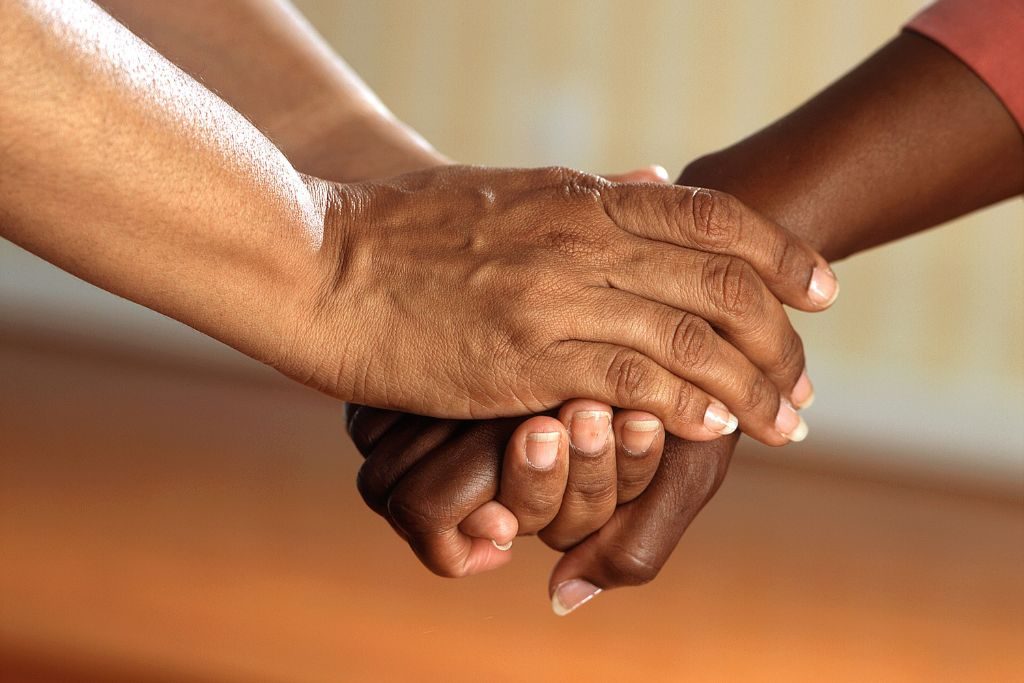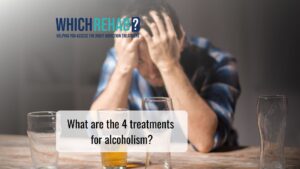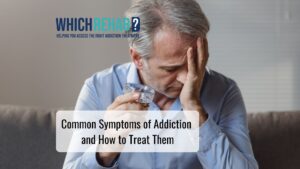If you or someone you know is struggling with drug or alcohol addiction, a rehabilitation centre, or rehab clinic could be the key to achieving prolonged sobriety. But what exactly is a rehabilitation centre?
In this article, we’ll discuss what a rehab centre is, the types of treatment offered and what you can expect when visiting one.

Rehabilitation centre definition
Rehabilitation Centres: A Place to Heal and Recover
A drug and alcohol rehabilitation centre is a specialised facility that provides a safe and supportive environment for individuals to recover from their addiction. The goal is to help individuals overcome their addiction to drugs or alcohol and restore their physical and emotional health.
The aim is for you to leave the rehabilitation centre with the tools and resources you need to maintain your sobriety and live a healthy, fulfilling life.
Types of rehabilitation centres
If you’re seeking rehabilitation treatment, you may be wondering what types of rehabilitation centres are available to you.
Both free and private rehab centres can provide a variety of services and treatments, each tailored to help individuals recover and improve their quality of life. Let’s explore some of the major types of rehab clinics that you may encounter on your journey towards recovery.
Inpatient rehab centres
Inpatient rehabilitation centres provide 24-hour medical care and a structured, supportive environment. At inpatient centres, you will live onsite and receive individualised care from medical staff. You will also find a sense of community through attending daily activities, such as group therapy sessions and have access to other treatment services such as cognitive behavioural therapy (CBT). Inpatient programmes generally last between 30 and 90 days or longer.
Outpatient rehab centres
Unlike inpatient centres where patients reside on-site, outpatient centres allow patients to receive treatment while continuing to live at home and maintain their daily routines.
There are many benefits to outpatient rehabilitation. First and foremost, patients are able to remain with their loved ones and receive support from their home environment. This can be extremely beneficial for those who need emotional support as they recover. Additionally, patients are able to continue working while receiving treatment. This is especially helpful for those who may not have the resources to take time off work for an extended period.

Who needs rehabilitation?
If you’re reading this, chances are you or a loved one may be in need of rehabilitation services. But who exactly needs rehabilitation? Well, the truth is anyone can benefit from rehabilitation, regardless of age, gender, or background. However, there are certain common causes that may lead someone to seek rehabilitation services.
One of the most common reasons people seek rehab services is addiction. Addiction can take many forms, including drug and alcohol abuse, gambling addiction, and even social media addiction. Addiction can be destructive and can have a severe impact on an individual’s personal and professional life. Those struggling with addiction can benefit greatly from rehabilitation services, which offer a safe and supportive environment that can help an individual break free from their addiction and achieve long-term recovery.
No matter the reason, if you or a loved one is in need of rehabilitation facilities, it’s important to seek out professional help. Rehab clinics offer a range of services and treatments that are tailored to an individual’s unique needs and circumstances.
Don’t hesitate to reach out for help – getting the right care and support can make all the difference in achieving a successful recovery.
What treatments do you find at rehabilitation centres?
Centres provide a range of rehab options and therapies tailored to meet an individual’s specific needs. Through a combination of medical care, counselling, behavioural therapy, and holistic practices, rehabilitation centres aim to help individuals overcome their challenges and improve their quality of life.
Clinical detox
One of the main benefits of rehab is clinical detox. Clinical detoxification ensures a safe environment for individuals who want to recover from drug addiction.
Clinical detox involves the use of medical treatment and supervision to help individuals safely and comfortably eliminate drugs from their bodies. The detox process can help relieve withdrawal symptoms and help you prepare for the rehabilitation program. Clinical detox also ensures that drugs are safely eliminated from your body, reducing the risk of potentially fatal overdose.
It’s important to note that some rehabilitation centres offer on-site detoxification services, while others may prefer that residents complete detoxification before beginning the rehabilitation program. If your preferred rehabilitation centre doesn’t offer on-site detox services, don’t worry; they will ensure that you’re appropriately referred to another facility to complete the detox process.
If you’re not sure whether you need detoxification services or not, there are a few signs to look out for that will indicate the need for clinical detox before starting the rehabilitation program. These can include experiencing physical withdrawal symptoms such as sweating, trembling, confusion, and hallucinations. Withdrawal symptoms can be tough to handle, and this is where clinical detoxification can help.

Addiction counselling
Addiction counselling is an essential component of the recovery process for individuals struggling with addiction. With between 40% and 60% of patients relapsing after rehab, this stage is crucial to increase your chances of long time recovery.
Counselling provides residents with a safe space to share their experiences and feelings about their addiction with a trained professional. Counsellors are there to help residents identify triggers and develop new coping mechanisms to prevent relapse.
Counselling also plays a crucial role in addressing any mental health issues that may have contributed to an individual’s addiction. It’s common for addiction to be a symptom of underlying emotional or mental health issues, such as depression or anxiety. Counsellors help residents work through these issues, and support them as they develop new skills to handle any challenges they may face.
During counselling sessions, residents can work through their negative feelings and behaviours, learn new ways to communicate with loved ones and develop healthy relationships. Healthy relationships are critical to a successful recovery, and counsellors help residents improve their family and interpersonal relationships.
The confidential and non-judgmental environment provided by counselling allows residents to share their thoughts and emotions, which can be challenging to do in other settings. This safe space encourages residents to grow and learn new skills that can help them lead a healthy life free from addiction.
The 12-Step Programme
At a rehabilitation centre, addiction treatment is viewed as a disease that requires a comprehensive and structured approach. One such approach is the 12 Step program developed by Narcotics/Alcoholics Anonymous (NA/AA). The 12 Step program is built around recovery principles that guide individuals toward overcoming addiction and maintaining sobriety over time.
The process involves a personal inventory that helps residents take a fearless and moral inventory of themselves and acknowledge the harms they have caused as a result of addiction. Next, residents identify and gain the strength to make amends for their past misdeeds.
At a rehabilitation centre, you’ll often find modified 12-Step models. These models cater to group therapy participation and help residents develop self-awareness, better understand their addiction, and alter their behaviour to promote healthier living. All this, while founding a sense of community with others participating in the program.

Cognitive-Behavioural Therapy (CBT) and social learning
If you are seeking addiction treatment and want to understand some of the psychological treatments used in rehabilitation centres, then it’s essential to learn about Cognitive-Behavioural Therapy (CBT) and Social Learning. These two therapies are proven techniques that can help individuals learn how to manage their emotions in recovery.
CBT is a therapy designed to help people recognise how their emotions impact their thoughts and behaviours. When a person is struggling with addiction, their emotions can be intense and overwhelming, which can cause them to turn to substance abuse. Through CBT sessions, individuals learn new responses to triggers and how to safely manage their emotions in recovery.
One-on-one CBT sessions create a safe and comfortable environment for addicts to open up and share any fears or concerns they may have. This allows therapists to provide them with the tools they need to develop alternative behavioural responses to sources of stress and triggers, giving them more resilience against relapse.
Social learning is a group program that involves participants sharing their successes and failures, learning from each other’s experiences, and redesigning their behaviour models. This approach allows individuals to understand that they are not alone and that there are others who have struggled and overcome addiction, which can be a huge source of motivation.
At rehabilitation centres, CBT and social learning is often used in combination to give patients all the tools they need to achieve successful recovery.
If you or a loved one are struggling with addiction, it’s never too late to seek help. Reach out to us today to learn more about our psychological treatments and start the journey to a healthier life.
What to expect during a typical drug or alcohol rehabilitation program
Drug and alcohol rehabilitation programs are designed to help those struggling with addiction overcome their substance use. During a typical program, individuals can expect to take part in a variety of activities and therapies that are intended to help them overcome their addiction and develop the skills needed to remain sober long-term.

1. Initial assessment
At the beginning of a rehabilitation program, you’ll typically go through an intake process which involves physical, mental, and emotional evaluations. This allows the staff to determine the appropriate treatment plan for you as an individual and provide the necessary support throughout your recovery journey.
2. Detoxification
Once a treatment plan is determined, individuals typically take part in various therapies, often starting with a medical detox, like that explained above.
3. Therapy and counselling
Once the harmful substances are clear from the system, various therapies, such as cognitive-behavioural therapy, group counselling, and individual counselling, are used to help you get back on track. These therapies focus on helping you understand your addiction, address underlying issues that can trigger substance use, and develop coping skills to prevent relapse.
4. Addiction aftercare
And once the initial program is complete, addiction aftercare is a vital part of your recovery. Addiction aftercare helps to safeguard addiction recovery from a relapse in the early and vulnerable days of sobriety. It re-enforces recovery and helps to prevent complacency, which is one of the main reasons an individual in recovery from alcohol and drug addiction can relapse.
Find a rehab centre near you today
It’s easy to feel like you’re alone and lost in your struggle with addiction or mental health issues. However, reaching out for help is a sign of strength and can be the first step towards a successful recovery. By asking for help, you’re taking that step in the right direction.
At Which Rehab, we understand that seeking help can be a daunting task. Our team is available to answer any questions and provide guidance to help you make an informed decision.
Don’t hesitate to get in touch and take the first step towards a healthier, happier life today.







